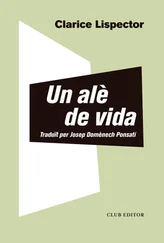In Italy, il miracolo is night fishing. Mortally wounded by the harpoon, the fish releases its crimson blood into the sea. The fisherman unloads his catch before sunrise, his face pale and intent in the knowledge that he is hauling the enormous load of miraculous fish over the sands: the miracle of love.
Milagre is the tear falling on the leaf. It trembles, escapes and falls: behold thousands of miraculous tears glistening on the grass.
The miracle has the sharp points of stars and much splintered silver.
Le miracle is a glass octagon which can be turned slowly in the palm of the hand. It remains in the hand, but only to be gazed at. It can be seen from all angles, very slowly, and on each side we see a glass octagon. Until suddenly, sensing danger and turning quite pale with emotion, we understand: in the palm of our hand we no longer hold an octagon but le miracle . From this moment onwards, we no longer see anything. We possess it.
To pass from the physical word to its meaning is to reduce it first to splinters, just as the firework remains a dull object until it is fated to become a brilliant flare in the sky and achieves its own death. (In its passage from being simply body to something maddened by love, the bee arrives at the supreme moment: it dies.)
Sometimes I tremble all over when I come into physical contact with animals or even so much as look at them. I seem to have a certain fear and horror of that living creature which is not human yet has the same instincts, although in the animal those instincts are freer and indomitable. An animal never substitutes one thing for another, is never forced to sublimate things as we are. And that living thing moves! It moves independently because of this nameless thing which is Life.
I once drew a friend’s attention to the fact that animals do not laugh, and she informed me that Bergson makes the same observation in his essay about laughter. And although I am convinced that dogs sometimes laugh, they smile with their eyes which suddenly turn brighter, with their gaping mouths as they pant and wag their tails. But cats never laugh, although they can be playful. I have had plenty of experience with cats. As a little girl I owned a rather common tabby-cat with stripes in various shades of grey. Cunning as could be, she had that feline instinct which made her suspicious and aggressive. My tabby-cat was forever having kittens and always with the same tragic outcome: I would insist I wanted to keep all the kittens at home, while unbeknown to me they were given away to who knows whom. And I kicked up such a fuss that one day I returned from school to find that my tabby-cat had disappeared. She, too, had been given away. The shock was so great that I took to my bed with fever. My family tried to console me by giving me a cat made of felt which I thought ridiculous. How could that dead, limp thing ever replace the supple energy of a live tabby?
Speaking of live tabbies, a friend of mine has decided to have nothing more to do with cats. He finally lost his patience with his tabby-cat who would get into such a frenzy when she was on heat that she would miaow day and night and keep all the neighbours awake. Then, without any warning, she would become almost hysterical and throw herself from the roof on to the ground below, causing herself serious injury. When I told my maid this sad story, she exclaimed ‘Holy Mother of God’ and made the sign of the Cross.
I have little or nothing to say about the sluggish turtle with that rock-hard shell on his back, covered in dust. This dinosaur which dates from the Tertiary Period is of no interest to me. The turtle is extremely stupid and relates to nothing, not even to itself. Sexual contact between two turtles has neither warmth nor life. And although I am no scientist, I can confidently predict that the species will disappear within the next few thousand years.
As for chickens and how they relate to themselves and to humans and, above all, to the egg they conceive, I have already said all there is to say. And I have also written at some length about monkeys.
I was already married and living in Naples when I bought a mongrel from a beggar-woman in a busy thoroughfare. I felt at once that he had been born for me and he must have felt the same, for I could tell that he was overjoyed and, without so much as giving a backward glance at his former owners, he came trotting after me, wagging his tail and licking my legs. It would take forever to narrate my adventures with this dog, who reminded me of a Brazilian mulatto urchin, despite the fact that my mongrel had been born in Naples. I christened him Dilermando, a rather grand name which aptly described the wise expression and knowing ways which made him so endearing. I could tell you so much about my beloved Dilermando. There was such a strong bond between us and such a natural affinity that he could sense my every thought and emotion. Whenever I was typing, he would sit at my feet looking just like a drowsing sphinx. And if I interrupted my typing to think about something, or because I had come up against a problem, he would open his eyes at once, raise his head and gaze at me with one ear cocked … waiting. And the moment I solved the problem and returned to my typing, he would settle down again, close his eyes and go back to dreaming: because dogs — believe me — can dream. No human being ever showed me as much love and wholehearted devotion as this mongrel.
When my sons were no longer babies, we presented them with a lovely big dog who patiently allowed the younger boy to ride on his back. And without being asked, this dog decided to guard the house and the entire street with fierce barking which kept the neighbours up all night. I once gave my sons some little yellow chicks who followed us everywhere, and got under our feet as if we were the mother-hen, for those tiny little creatures were as much in need of a mother as any human. The relationship between humans and animals is unique and cannot be compared to any other. Looking after animals is something everyone should experience. People who have never owned a pet animal lack a certain intuition of the living world. People who refuse to have anything to do with animals are afraid of themselves.
Yet sometimes I tremble all over when I look at animals. On occasion I can even sense that primeval cry buried inside me when I am with them. It is almost as if I no longer know who is more animal, me or the animal. I become totally confused, as if I were afraid of confronting my own suppressed instincts, which I am obliged to assume in the presence of animals, demanding as they are. And what else can we poor humans do? I once knew a woman who humanized animals, chatting to them and transmitting her own traits of character. But I do not humanize animals for I should find that offensive — one must respect nature — and it is I who animalize myself. Far from being difficult, this adjustment comes naturally. It is simply a question of surrendering, without putting up a struggle.
But after much thought, I have come to the conclusion that there is nothing more difficult in this world than to surrender completely. This is one of man’s greatest sorrows.
To imprison a tiny bird in the palm of one’s hand is horrifying. The poor little bird puts up a frantic struggle, flapping its wings in desperation. You can feel hundreds of little fluttering feathers until the feeling becomes so unbearable that you open your hand quickly and either free the bird or return it to its owner so that it might be restored to the greater freedom, relatively speaking, of its cage. Frankly, I prefer to see birds in the trees or flying through the air and well out of my reach. Perhaps one day, after rather more prolonged contact with the birds of Augusto Rodrigues in the Largo do Boticário, I shall get to know them intimately and be able to rejoice in their ethereal presence. (‘To rejoice in their ethereal presence’ gives me the feeling of having said in a nutshell precisely what I mean. It is a strange feeling, and who knows, I could be deceiving myself, but that is another matter.)
Читать дальше












